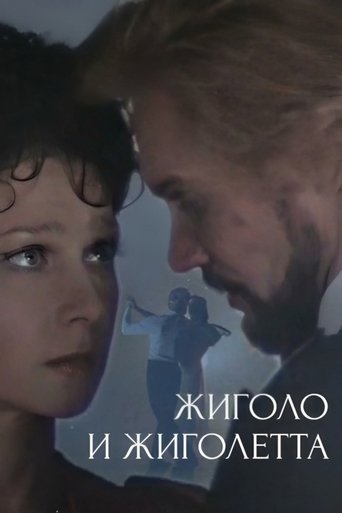"Жиголо и Жиголетта" (1980), produced by the Soviet studio Ekran, is a captivating musical film that delves into the world of cabaret and romance. Set against the backdrop of the vibrant yet challenging life of performers, the film follows the intertwined lives of two protagonists, a gigolo and a gigalette, as they navigate the complexities of love and ambition. The film's unique blend of humor, drama, and song-and-dance sequences offers a distinctive look at the Soviet interpretation of the cabaret genre, which was not commonly explored in Soviet cinema. Directed by Alla Surikova, the film showcases the talents of popular Soviet actors such as Mikhail Boyarsky and Larisa Udovichenko, who bring depth and charisma to their roles. Boyarsky's portrayal of the suave yet vulnerable gigolo, and Udovichenko's spirited performance as the gigalette, create a dynamic on-screen chemistry that drives the narrative forward. The film's soundtrack, featuring catchy tunes and elaborate choreography, adds to its appeal, making it a memorable entry in the musical genre. "Жиголо и Жиголетта" also offers a subtle critique of societal norms and the pursuit of personal freedom within the constraints of the Soviet era. Through its portrayal of the protagonists' struggles and aspirations, the film touches on themes of individuality and the quest for happiness in a world that often demands conformity. This underlying message resonates with audiences, adding a layer of depth to what might otherwise be seen as a light-hearted musical. Overall, "Жиголо и Жиголетта" stands out as a bold and entertaining film that successfully merges the elements of musical theater with social commentary. Its enduring popularity among Soviet and post-Soviet audiences is a testament to its artistic merit and the universal appeal of its themes. The film remains a fascinating example of how Soviet cinema could explore diverse genres and narratives, even within the limitations of the time.
Año1980
Duración40 minuto
GénerosMúsica
Países de producciónSoviet Union

